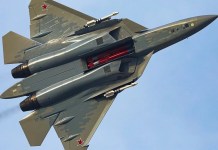The Iranian Space Agency (ISA) officials claim to have become the only country in the region which is aggressively developing satellite launchers to put two satellites into orbit. The US, Israel and other Arab nations are severely critical of Iran’s space program which they see a threat to the regional security. EurAsian Times bring you a report of Iranian PressTV.
Why is Iran’s Space Program a Big Threat to the United States?
Seyyed Hossein Mousavi, an advisor to head of the Iranian Space Agency said Iran will soon put Payam and Doosti satellites into orbit to demonstrate its advancement in the field of satellite technology and science.
“It is fortunate to say that we are in very good conditions in terms of developing satellite technology and launch among regional countries, and due to sanctions imposed on our country, our goal is to become self-sufficient in this field,” he said.
The official added that Iran is the only regional country active in the field of manufacturing satellite launchers in the region, seconded only by the Zionist regime in this regard. He noted that Payam satellite, which is a product of researchers at Amir Kabir University of Technology, is capable of taking high-resolution images and will last in orbit for a period of two years.
Mousavi stated that the goal of producing Doosti satellite was mostly to promote satellite technology and knowledge in the country and transfer that technology to Iran. Meanwhile, the official in charge of developing Payam satellite has high-precision cameras capable of taking photos with a precision of 40 meters, which can be then used for agricultural development purposes, studying vegetation and forests, silviculture and other peaceful goals.
The ISA’s deputy director for development of space services, Ali Sadeqi Naeini, said in an interview also published on Monday that the Iranian satellites will be put into an orbit 500 km above the Earth and are expected to last for two years.
He said the technology used to make the two satellites was totally home-grown, adding, “No foreign country has provided us with space technology and this is purely domestic know-how.”
The official noted that in terms of satellite design and manufacture technology, Iran currently ranks the first in the region and there are a high number of prominent Iranian specialists both within and without the country, who are internationally known for their expertise in the field of astronomy and space since.
Addressing a large crowd of people during his visit to Gonbad-e Kavous in the northern Iranian Golestan Province earlier on Monday, President Hassan Rouhani lauded Iran’s top rank in terms of its scientific standing, particularly in genetics, in the Middle East region.
He pointed out that the country will be placing two satellites into orbit in the coming days. Iranian Foreign Minister Mohammad Javad Zarif said Tehran will continue with its aerospace program despite US warnings, stressing there is no international law banning such a program.
Secretary of State Mike Pompeo warned Iran last week to abandon its plans for satellite launches that the US claims involve technology that could be used in intercontinental ballistic missiles capable of reaching the US mainland.
Iranian Minister of Information and Communications Technology Mohammad Javad Azari Jahromi also said last Monday that Iran would ask no one’s permission to develop its peaceful aerospace program.
“Iran will ask no one’s permission to develop its peaceful aerospace industries and will firmly proceed with its plans,” he said. He added that Iran had successfully made preparations for the launch of Payam and Doosti satellites and would do so upon an order by relevant officials.
More News at EurAsian Times
- Indian Military Base in Vietnam To Protect Hanoi’s Territorial Interest
- Indian Military Base in Sabang can Strangle China at the Strait of Malacca
- Saudi Money, US Weapons, Israeli Intelligence Fuelling Arab NATO – Iran
- Will Ayni Airbase in Tajikistan Become India’s 1st Overseas Military Base?
- Indonesia Opens Another Military Base at Natuna Islands To Counter Aggressive China




